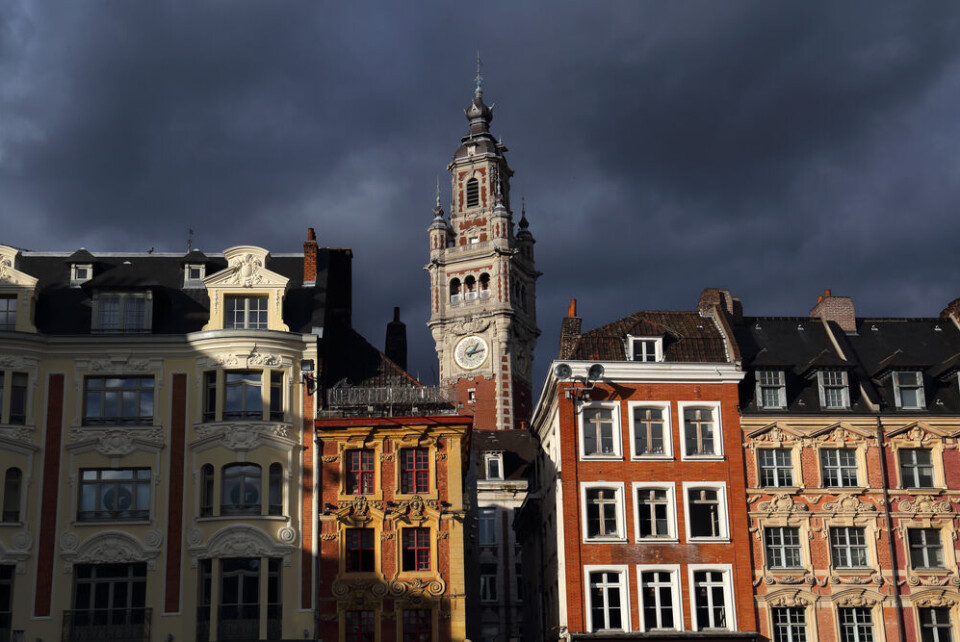-
More French podcasts to test your language skills
Podcasts are one of the best free tools for consistently developing your listening comprehension
-
Rugby vocabulary to know if watching the Six Nations in France
From un tampon to une cathédrale, understand the meaning of key French rugby terms
-
Learning French: what does faire grise mine mean and when should it be used?
A phrase to use when someone is down in the dumps
Speak like a local: seven phrases specific to the north of France
Il drache, bénache, biloute - try the language of the Ch’tis

People from the north of France are known for their unusual pronunciations.
When Emile Zola visited the north to write the book Germinal, he allegedly needed a translator to understand what the people were saying.
One of the most noticeable features of Ch’ti - the unofficial name given to the dialect and people of the north - is the pronunciations of ‘s’ and ‘c’ as a ‘ch’ sound (or in English, ‘sh’ sound).
It has many other specificities and there are lots of phrases unique to the north.
We have collected some of our favourites below.
Afterwards, you can watch Bienvenue Chez Les Ch’tis (Welcome to the Sticks in English), a French cult classic from 2008, to add to your northern education.
Quoque ch’est qu’te berdoules?
This expression can be translated as ‘what on earth are you doing?’
Berdouiller is a word used in various regions, meaning to do something clumsily or badly.
The first part of the expression is the northern version of ‘qu’est-ce que tu’, which means ‘what are you’.
It is a good example of differences between common French and Ch’ti French.
It is an informal expression and can be used out of frustration or in amusement, depending on context.
Il drache
Il drache means that it is raining very hard and thus is commonly used.
You might say je ne veux pas sortir, il drache (I do not want to go out, it is pouring).
It is derived from the Flemish word draschen, with the same meaning. Ch’ti are not restricted to France, they can also be residents of Belgium, hence the connection to Flemish.
Biloute
This word is an affectionate term for a friend, usually a man or a boy.
It is taken from the Picard dialect, which was particularly used in Hauts-de-France and the west of Belgium.
Over time, it has slowly migrated away from the north, and you might hear it in other places of France, although not commonly.
When you see your friend in the street, you can say salut biloute. Its nearest equivalent in English would be ‘hello mate’.
However, biloute also means penis or, rather, willy.
J’te dis quoi
This extremely common phrase translates literally as ‘I tell you what’ but it has a very different meaning.
It means ‘I will let you know’ or ‘I will keep you updated’.
If you use it with someone from anywhere but the north, it will most likely cause confusion.
Notice that the ‘e’ from je is taken out to shorten the phrase. This is common in spoken French but it is particularly the case in the north.
Un kien nfé pa un ka
This is how the ch’ti pronounce the words: un chien ne fait pas un chat (a dog does not make a cat).
As we saw, the ‘c’ and ‘s’ sound are replaced by a ‘sh’, and the opposite is also true. Words that have a ‘sh’ sound in them already, like chien and chat are instead pronounced with a ‘c’ sound.
The English equivalent of the expression is ‘the apple does not fall far from the tree’ or ‘like father, like son’ and is used in the same context.
If your tennis-mad friend talks about their son also loving tennis, you can reply un chien ne fait pas un chat.
Bénache
This term comes from Picard and means happy. It is related to the term for wellbeing: bien-être, or benachté in the Picard dialect.
If you use the term in front of your ch’ti friend, then you are sure to make them very bénache.
Met tout abic-abac
This expression means to put things all over the place.
When your child is making a mess, you can tell them tu mets tout abic-abac!
It is mostly used with friends and family.
Read more
French phrases that change meaning depending where you are in France
























